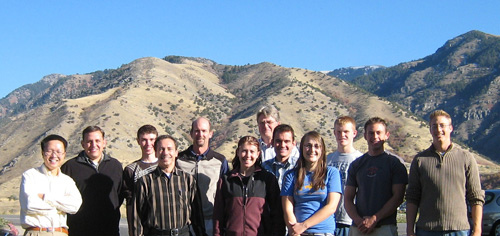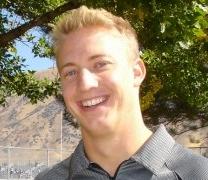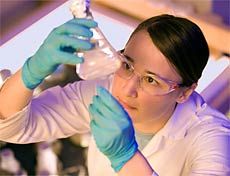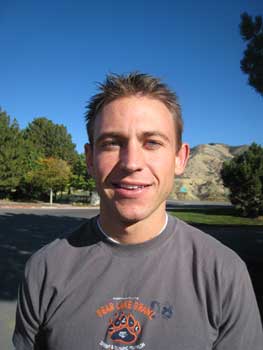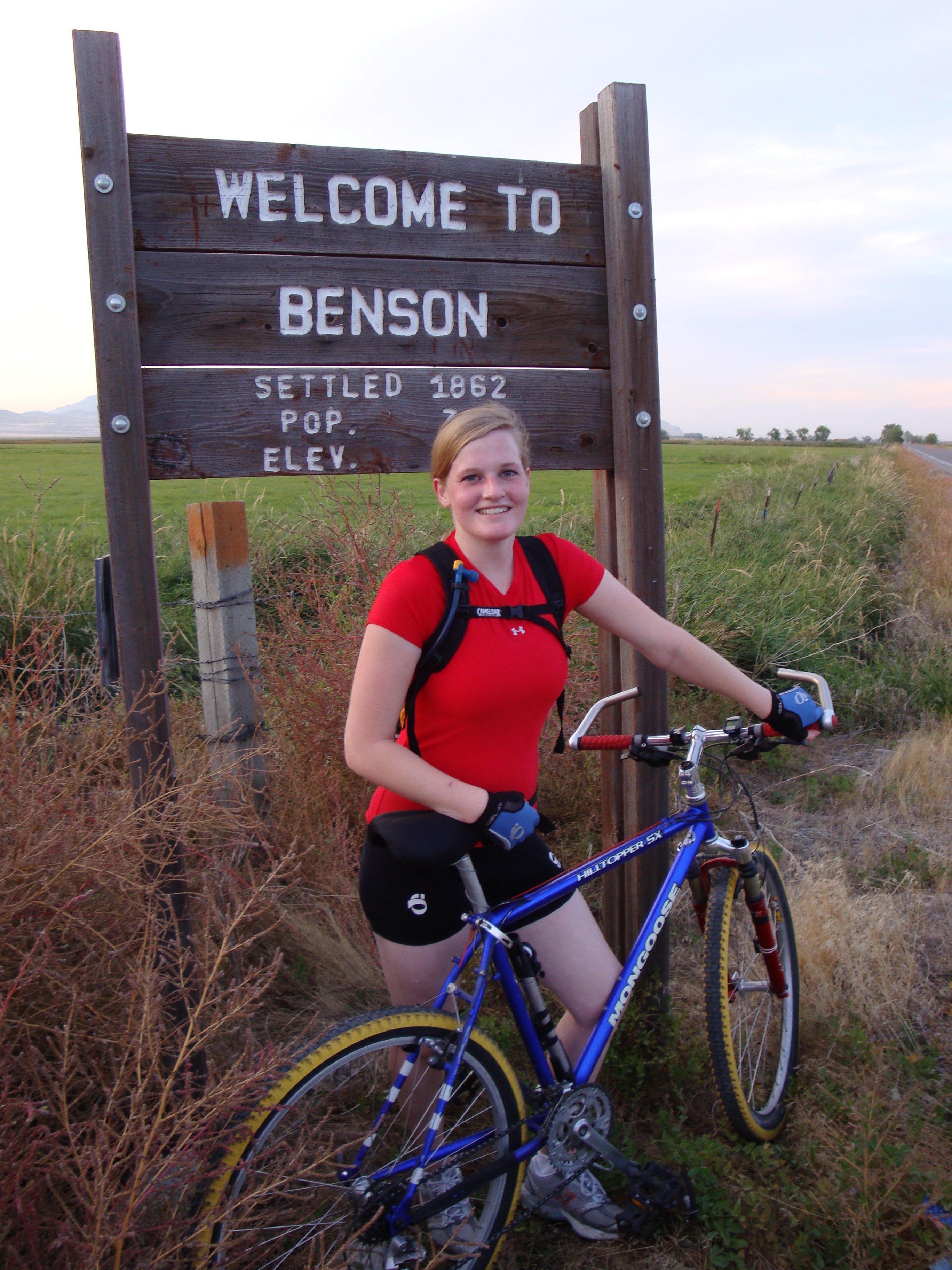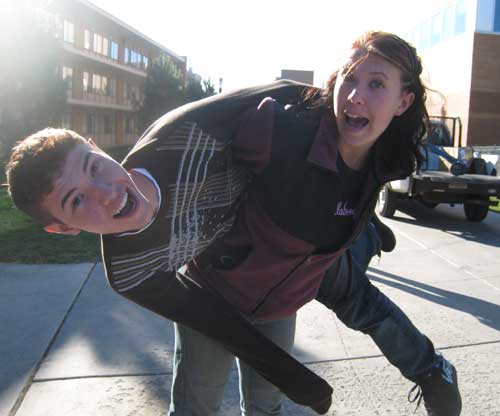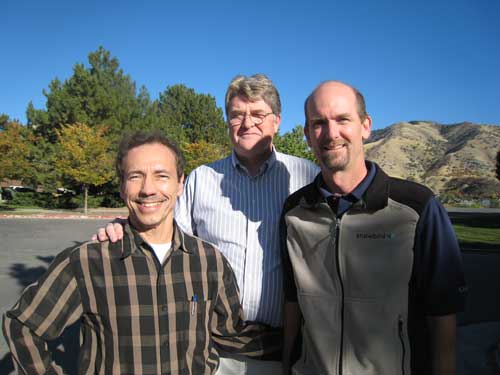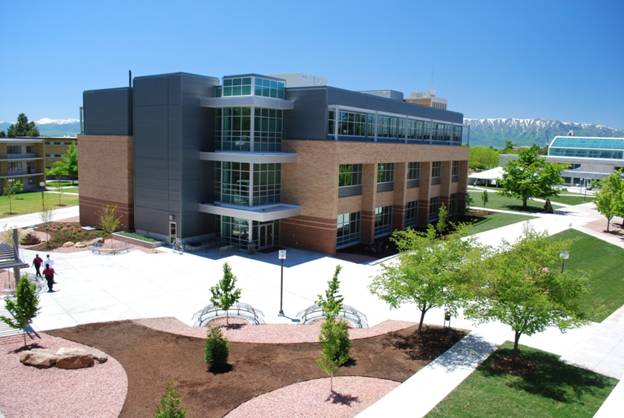Team:Utah State/Team
From 2008.igem.org
(→iGEM 2008 at USU) |
(→iGEM 2008 at USU) |
||
| Line 24: | Line 24: | ||
[[Image:USU_iGEM.jpg|500px|right]] | [[Image:USU_iGEM.jpg|500px|right]] | ||
|'''TEAM USU BACKGROUND''' | |'''TEAM USU BACKGROUND''' | ||
| - | Utah State University is proud to be involved in the 2008 iGEM competition for its first year. The 2008 USU iGEM team consists of graduate, undergraduate, and high school students with varying levels of experience in genetic and biological engineering under the supervision of | + | Utah State University is proud to be involved in the 2008 iGEM competition for its first year. The 2008 USU iGEM team consists of graduate, undergraduate, and high school students with varying levels of experience in genetic and biological engineering under the supervision of faculty with backgrounds in Biological Engineering, Electrical Engineering, Biology, and Microbiology. Through team meetings and working closely together in the lab, team members came to know each other and the project material. Though many project topics were seriously discussed, the team chose to study a method of monitoring Polyhydroxybutyrate production in microorganisms by inserting a reporter in the PHB cassette. This project was selected because of its potential to make the PHB production process more efficient and cost effective by creating a simple system for determining the optimum time for PHB extraction. |
|-|[[Image:USU_iGEM.jpg|right|frame]] | |-|[[Image:USU_iGEM.jpg|right|frame]] | ||
Revision as of 03:30, 30 October 2008

|
| Home | The Team | The Project | Parts | Notebook | Protocols | Links |
|---|
Contents |
iGEM 2008 at USU
Utah State University is proud to be involved in the 2008 iGEM competition for its first year. The 2008 USU iGEM team consists of graduate, undergraduate, and high school students with varying levels of experience in genetic and biological engineering under the supervision of faculty with backgrounds in Biological Engineering, Electrical Engineering, Biology, and Microbiology. Through team meetings and working closely together in the lab, team members came to know each other and the project material. Though many project topics were seriously discussed, the team chose to study a method of monitoring Polyhydroxybutyrate production in microorganisms by inserting a reporter in the PHB cassette. This project was selected because of its potential to make the PHB production process more efficient and cost effective by creating a simple system for determining the optimum time for PHB extraction.
Team Members
|
FACULTY ADVISORS:
GRADUATE STUDENTS:
UNDERGRADUATE STUDENTS:
HIGH SCHOOL STUDENTS:
|
|
Team Member Contributions
- Junling Huo is a PhD student in Biological Engineering who served as an advisor for the iGEM team. He helped to answer student questions, and guide such experimental activities as primer design, electrophoresis, and DNA purification. His personal research is on Rhodobacter sphaeroides, a photosynthetic bacterium.
- Stephen Merrigan is currently working on a MS in Biological Engineering at Utah State studying biodiesel production from algae, and has a background in Microbiology. Stephen's primary role was as an advisor for the project. During the first few months of the project Stephen did background research on project topics. He also helped with lab work when necessary, including DNA purification. Stephen also advised on the wiki construction.
- Joseph Camire advised on targeting the amplification of the full phaCAB cassette and phaC gene,optimizing the PCR process and testing of primer sets with and without prefix and suffix regions. His work also involved sequence determination and analysis of the phaCAB cassette contained in the source plasmid. He also guided work on the phaC gene, which included targeting at amplification and preparing the gene for site-directed mutagenesis for removal of a critical restriction enzyme site prior to ligation of a new phaCAB cassette for biobrick construction.
- Kirsten Sims is a first-year graduate student at Utah State University in Biological and Irrigation Engineering. She received her Bacherlor's degree from Gonzaga University in Biology. Her research focuses on the development of cellulose-derived biofuel. As a member of the USU iGEM team, she was involved in the development and design of the project, as well as participation in the laboratory procedures. She also contributed to the development of the wiki by providing an abstract of the project.
- Trent Mortensen is a finishing senior in Biological Engineering. His main research direction is biomedical in nature, using herbal antibiotics as possible alternatives for disease treatment. As part of the USU iGEM team, he played an active role in the planning of the project, group coordination, advising professor consultation, laboratory work, ordering of materials, lab maintenance, Wiki preparation, documentation, and presentation preparations throughout the course of the project.
- Elisabeth Linton is a Biological Engineering student. Her research is focused on the the analysis and verification of gas chromatography and nuclear magnetic resonance methods for the quantification of intracellular polyhydroxyalkanoates in bacterial and environmental samples. For the iGEM team, Libbie helped in project determination and planning, as well as literature review and topic research. She also carried out work in the laboratory like restriction enzyme digestions, gel electrophoresis, DNA isolation, and bacterial transformations. She was also responsible for coordinating efforts and organizing the wiki.
- Daniel Nelson is pursuing a degree in Biological Engineering and his current personal research project is “Omega-3 Fatty Acid Production and Extraction in Schizochytrium limacinum SR21.” He has enjoyed participating in group discussions as project ideas and direction have been determined. In the lab, he has worked with the team to isolate, purify, and analyze the key DNA promoters for the PHB synthesis gene. He hopes that through study of these promoter regions, the team will find a way to increase PHB production and create a general gene expression system to monitor cellular product accumulation. Outside of the lab, he has helped to design the logo for the USU team.
- Rachel Porter is a sophomore at Utah State University majoring in Biological Engineering/pre-med. For the iGEM project, she helped to carry out some of the lab work. In the lab, she helped isolate and purify DNA, prepare and run electrophoresis gels, and culture cells.
- Matthew Sims is a Senior attending Logan High School. This is his first year participating in laboratory research at Utah State University. He plans to go to college next fall and continue his studies in molecular biology and biochemistry. He helped during the summer months to carry out many experiments and obtain and analyze data.
- Garrett Hinton is a junior at Sky View High School in Smithfield, Utah. He was heavily involved in the project discussion meetings, as well as the background literature research. Garrett spent many hours working on this project and carried out a substantial portion of the laboratory work.
We would like to thank our faculty advisers - Dr. Ron Sims, Dean Scott Hinton, and Dr. Charlie Miller - for all of their support and for providing this opportunity for the students.
Logan and USU
Utah State University is located in Logan, Utah. Logan is about 85 miles north of Salt Lake City, Utah. The city of Logan is located in the heart of Cache Valley near the on the western slopes of the Bear River Mountains, the northernmost branch of the Wasatch Range. The city has a population of approximately 47,000. Logan was established in 1859 and has a rich heritage and wonderful culture. The city of Logan has been stated to be among the safest cities in America.
Utah State University was established in 1888 as the Agricultural College of Utah. It's name was later changed to Utah State Agricultural College and was again changed to Utah State University (USU) in 1957. As the land-grant university in Utah, USU conducts world-class research in a variety of agricultural and natural resource disciplines, and has several projects in conjunction with the Department of Defense, NASA. Utah State University also conducts extensive aerospace research. The main campus is located in Logan, Utah. Beyond the Logan campus, Utah State's Extension programs extend academic resources and support throughout the entire state of Utah, having extension locations in each of Utah's 29 counties.
 "
"
